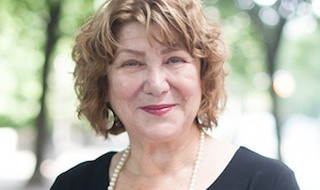The Quality of Life Benefit That No One Knows About
Insider information on accessing the underutilized gifts available to the public through the healthcare system: Palliative Care and Hospice. Written by Miryam Rabner

Most people do not understand what “Palliative Care and Hospice” actually is, and how it could apply to them when dealing with a family health crisis. Those who think they understand what it is, are often scared off by the presumption that these are “death benefits” and change the subject. Either they feel It is too unpleasant to contemplate, or they feel that it would be like giving up on their loved one.
But, Palliative Care and Hospice are really quality of life benefits, and not just for the terminally ill patients, but also for the caregivers. Caregivers get access to expert partners who will join with them in providing the best possible support for their loved one.
These underutilized benefits of the health care system, many legally encoded, offer amazing support for those who are in the know. Taking advantage of these perks requires a certain mindset and proper information. By not availing ourselves of these amazing benefits, we are under serving ourselves and our loved one suffering with a serious or life-threatening illness.
Palliative Care is easier to accept for most of us because it is a dual path: Using it when seeking a cure for the illness, and also for the best quality of life and symptom management, at the same time.
When To Consider Palliative Care
If you or your loved one has been diagnosed with a serious or life - limiting illness, you may want to consider Palliative Care. The focus of Palliative Care is to relieve the pain and symptoms associated with the illness, while you continue to receive curative treatment for your diagnosis. Its main goal is to provide the best possible quality of life for the patient, regardless of their age, or the stage of the disease.
Palliative Care is delivered by a team that typically consists of a clinician (physician or nurse practitioner), a nurse manager, and/or a social worker. The team may also include a nutritionist, creative arts therapist (music and art) and mental health or spiritual care providers such as a chaplain. These professionals can help lead discussions about the patient's goals of care, while providing support throughout all stages of the disease trajectory.
Palliative Care services are billed the same as any specialist-level visit (e.g. cardiology), and most insurance programs cover them, possibly with a co-pay. They may be offered in addition to - and not instead of - a primary care physician's services. Nowadays, most urban hospitals have a Palliative Care department, although it may not be widely advertised, and patients may have to specifically ask for a consultation. Patients can receive care anywhere they call home, including hospitals, nursing homes, outpatient clinics, or in your or your loved one’s home.
Palliative Care Information Act of 2011
In New York, the Palliative Care Information Act was passed into law in February 2011 to ensure that patients are fully informed of the options available to them when faced with a life-limiting or terminal illness. Health care practitioners are required to offer seriously ill patients information and counseling about Palliative Care and end-of-life options, including prognosis, range of options appropriate for this patient, risks and benefits of the various options, and the patient's legal right to comprehensive pain and symptom management at the end of life. If the patient is no longer competent to have these conversations, they must be held with the patient's health care agent (surrogate).
Of course, not every patient wishes to hear this information from their physician, and they have the right to refuse it. And not every physician or nurse practitioner feels equipped to have these serious conversations. In the latter case, the healthcare provider must arrange for another qualified physician or Nurse Practitioner to hold them.
What is Hospice?
Hospice, also known as comfort care, is for patients who have made the personal decision to no longer pursue curative treatment for an illness. Instead, they have decided to focus on quality of life and time with family and friends. The decision to seek hospice care is an important one. If you or a loved one has been diagnosed with a terminal illness, there may come a time when efforts to cure or even slow the illness are no longer working and become debilitating rather than helpful. If that time comes, you might want to consider the benefits of hospice care.
Patients usually transition to hospice care when they have decided to stop curative or aggressive treatments. "Hospice" focuses on comfort, not curing, respecting the fundamental principle that each of us has the right to live pain-free and die without suffering, and with dignity.
Who Qualifies For Hospice
Any person, at any age, can receive hospice care if the following criteria are met: 1. A licensed physician would not be surprised if this patient were no longer alive in six months if the disease runs its usual course, and, 2. The patient agrees to no longer pursue curative treatments.
Hospice Care is a personalized inter-disciplinary, specialist-level of care delivered by a team consisting of a board-certified physician or nurse practitioner, a registered nurse case manager, a social worker, clinical pastoral care providers (chaplains) and volunteers. The team may also include a licensed creative arts therapist (music and art). Goals of care discussions between the clinical staff, patient and loved ones help form the plan of care and lend support to the patient and the family throughout the course of the disease. Pre- and post- bereavement support is provided and extends to 13 months following a patient's death.
Most hospice care is delivered in the home setting, wherever the patient resides. This may include an apartment, home, nursing home, assisted living facility, etc. If the hospice care is provided at a skilled nursing or assisted living facility, it does not take the place of the facility’s existing staff. The hospice team supplements the facility’s care and coordinates with its clinical teams. Hospice care can also be provided in special units of contracted hospitals and in separate hospice residences.
Who Pays For Care?
Medicare, Medicaid, and all insurance programs offer hospice benefits. Many hospice agencies will also take on some patients who are unable to pay for their care through access to their internal foundation, grants or donations.
If you would like to learn more about Palliative and Hospice Care, as well as what is available to you, contact Miryam Rabner at mrabner@MJHS.org.
To good health!
About the author
Miryam Rabner, M.Phil., has been a community outreach liaison for MJHS Hospice and Palliative care in the Bronx and Manhattan for the past 16 years. MJHS is one of the largest not-for-profit health systems in the eastern seaboard region. MJHS provides home care services, hospice and palliative care for adults and children, rehabilitation and nursing care, and the research-based MJHS Institute for Innovation in Palliative Care.
Miryam is a guest poster and friend of Senior Care Authority of New York and Southwest Florida.
Senior Care Authority of New York and Southwest Florida offers assistance with quality-of-life preparation, planning and care. Contact us to schedule a complimentary consultation to learn more about this and our other services, by emailing info@scanyfl.com





